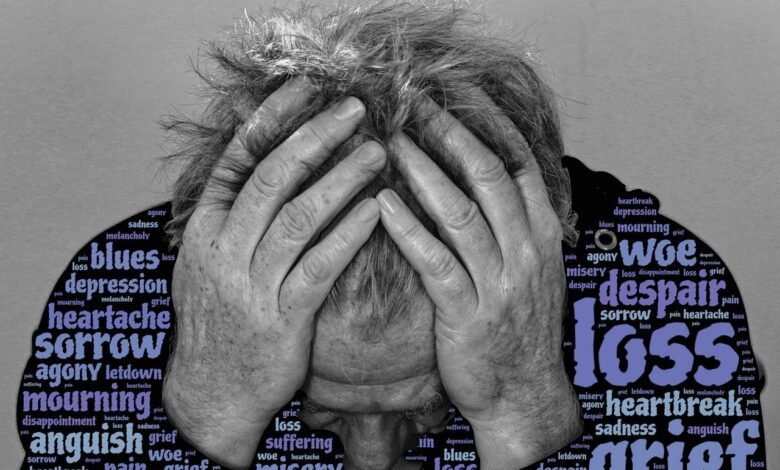Healing from Loss: A Comprehensive Guide to the 7 Stages of Grief

Understanding Grief and loss
Grief is a natural response to loss, an emotional journey that we all experience at some point in our lives. Whether it’s the death of a loved one, the end of a relationship, or any other significant loss, grief can be a deeply painful and challenging process. Understanding the stages of grief can help us navigate this journey and find healing.
The 7 stages of grief
The 7 stages of grief, as outlined by psychiatrist Elisabeth Kübler-Ross, provide a framework to understand and process the complex emotions that arise during the grieving process. These stages are not linear, and everyone experiences them in their unique way. It’s important to remember that there is no right or wrong way to grieve.
Denial: Recognizing and processing emotions
In the initial stage of grief, denial acts as a protective mechanism. It allows us to process the overwhelming emotions gradually. Denial may manifest as disbelief, numbness, or a refusal to accept the reality of the loss. It’s important to give ourselves permission to acknowledge and express our emotions during this stage. Journaling, talking to a trusted friend, or seeking therapy can help us recognize and process our feelings.
Anger: Channeling and releasing emotions
Anger is a natural response to loss. It can be directed towards ourselves, others, or even the person we have lost. It’s important to understand that anger is a normal part of the grieving process. Finding healthy outlets to channel this anger, such as exercise, art, or engaging in a hobby, can help release pent-up emotions and promote healing.
Bargaining: Finding meaning and acceptance
During the bargaining stage, we may find ourselves searching for answers or trying to make deals with a higher power. It’s a way of seeking meaning and finding acceptance in the face of loss. This stage can involve feelings of guilt or regret. It’s important to remind ourselves that we cannot change the past and to focus on self-compassion and forgiveness.
Depression: Navigating through the depths of sadness
Depression is a common stage of grief, characterized by feelings of sadness, emptiness, and hopelessness. It’s important to allow ourselves to grieve fully and not suppress these emotions. Taking care of our physical and emotional well-being during this stage is crucial. Engaging in self-care activities, seeking professional help if needed, and leaning on our support system can help us navigate through the depths of sadness.
Acceptance: Moving forward and finding peace
Acceptance is not about forgetting or getting over the loss; it’s about finding peace and integrating the loss into our lives. It doesn’t mean that we won’t feel sadness or miss our loved ones, but rather that we have come to terms with the reality of the loss. This stage allows us to move forward and find new meaning and purpose in our lives.
Healing techniques and coping strategies
While grief is a deeply personal journey, there are various healing techniques and coping strategies that can support us along the way. Some effective approaches include:
- Self-care: Prioritizing self-care activities such as exercise, meditation, and getting enough sleep can help replenish our physical and emotional energy.
- Journaling: Writing down our thoughts and emotions can be a cathartic way to process grief and gain clarity.
- Creative outlets: Engaging in creative activities such as painting, playing music, or writing poetry can provide a healthy outlet for expressing our emotions.
- Support groups: Joining a grief support group or seeking therapy can provide a safe space to share experiences, gain support, and learn coping strategies from others who are going through similar experiences.
Seeking support and professional help
It’s essential to remember that grieving is not a journey we have to face alone. Seeking support from friends, family, or professionals can provide invaluable assistance during this challenging time. Whether it’s through therapy, support groups, or simply having a compassionate listener, reaching out for help is a sign of strength and can facilitate the healing process.
Conclusion
The journey of healing from loss is a deeply personal and complex one. By understanding the 7 stages of grief and utilizing healing techniques and coping strategies, we can navigate this journey with greater resilience and find healing in our own time. Remember, there is no right or wrong way to grieve, and it’s important to be kind to ourselves as we move through the stages of grief. Seek support, practice self-care, and be patient with yourself. Healing is possible, and with time, you will find your way towards acceptance and peace.




